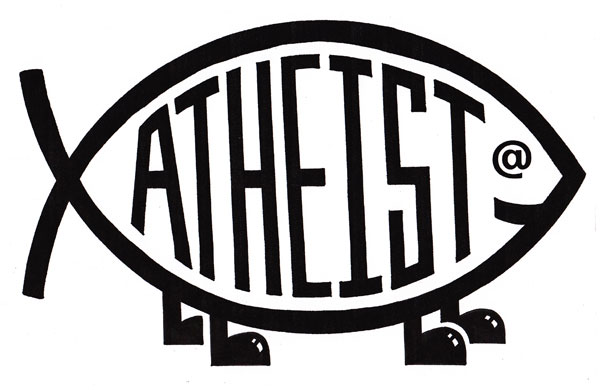Is Atheism a Religion?
by Jimmy Akin
Filed under Atheism
At first, the claim that atheism is a religion might sound ridiculous.
It certainly can be a surprising claim.
And it’s one that many people, including western atheists, might initially dismiss out of hand.
But there’s more to the story here.
There is a case to be made that, in a very real sense, atheism is a religion.
A Word About Words
Words mean what people use them to mean. So whether atheism counts as a religion will depend on how you use the term “atheism” and how you use the term “religion.”
There is no single right way or wrong way to use terms. Their boundaries can be drawn differently by different people, and their meanings can change over time.
As a result, I’m not going to be claiming in this piece that there is a single right or wrong way to define our two terms.
In fact, I don’t really care about the terms. What I’m interested in is the reality that the two terms represent.
My claim, therefore, is that the reality of what is commonly called “atheism” has much in common with the reality of what is commonly called “religion.”
The two have so much in common that there is a sense in which atheism can be seen as a religion.
“Are You A Christian?”
A prima facie or “at first glance” case for the claim that atheism can be seen as a religion can be found in the answer an atheist might give to the question “Are you a Christian?”
When presented with this question, an atheist may reply, “No, I’m an atheist.”
On the other hand, if he was instead presented with the question, “Are you a Jew?” he might again reply, “No, I’m an atheist.”
If he had been asked, “Are you a Buddhist?” or “Are you a Muslim?” or “Are you a Hindu?” he might well give the same answer: “No, I am an atheist.”
This suggests that being an atheist is analogous to being a Christian, a Jew, a Buddhist, a Muslim, or a Hindu.
And that, in turn suggests that atheism is analogous to Christianity, Judaism, Buddhism, Islam, and Hinduism.
In other words, atheism, too, can be seen as a religion.
Now let’s ask a question that will let us go deeper into the subject . . .
Why?
Why is it possible to view atheism as a religion?
A good starting point is asking what the different religions have in common.
This is a potentially vast discussion, as the field of comparative religion shows.
Many of the definitions of religion (and there are many) get into rather deep and abstract waters (e.g., whatever your “ultimate commitment” is, etc.).
We can’t go into all the possible definitions in a blog post, but I would like to propose what strikes me as a commonsense, functional definition of religion.
It is a definition that will distinguish between the things we normally think of as religions and those we normally do not.
Before we get to that, though, we need to define our first term . . .
What Is Atheism?
Atheism can be defined in different ways, but for purposes of this piece, I will be using the term “atheism” to refer to standard western atheism—that is, to the view that rejects the existence of God or the gods, that there is no afterlife, and that the material universe is all that is real.
There can be and are other understandings of atheism, but this is the paradigmatic version of atheism in the west, and it’s what we will be considering here.
Also, for purposes of this post, we won’t be going into the difference between the “God positively does not exist” version of atheism and the “I can’t positively rule out the existence of God, but I don’t have convincing evidence, so I don’t believe in him” version of atheism.
For purposes of simplicity, we’ll treat them both as a rejection of the existence of God/the gods.
Same thing goes for “the afterlife positively does not exist” atheism and “I don’t have good evidence, so I don’t believe in the afterlife” atheism.
What Religion Is
In this piece, I will use the term “religion” as follows:
Something is a religion if it has a position on the divine and/or the afterlife.
By “the divine” I mean God or the gods.
By “the afterlife” I mean “the afterlife”—what, if anything, happens to us after death.
A more technical definition could be proposed (e.g., “X is a religion if and only if . . .”), but what I’ve suggested is a functional definition that one works fairly well for distinguishing the things we call religions from those we don’t.
In what follows, for purposes of simplicity, we’ll be looking at religions in their classical forms, not every possible variant of them.
We will, however, take note of two notable historical variations, one of Buddhism and one of Judaism, because they are fairly well-known and have a bearing on our subject.
Things That Aren’t Religions
Things that aren’t religions under this definition include mathematics, boatbuilding, the culinary arts, square dancing, and virtually all of the other things we normally don’t consider religions.
They don’t have a position on the existence of the divine or the afterlife, so they’re not religions.
Of particular note, belief in evolution is not a religion—despite the claims of some Creationists.
One can believe in the existence of evolution without taking a position on the divine or the afterlife.
On the other hand, belief in evolution can take on a religious dimension if, e.g., it is proposed as a reason to either reject or accept belief in the divine or the afterlife.
But then that’s true of anything that is proposed as a reason to reject or accept belief in the divine or the afterlife.
Now let’s turn to viewpoints that do have a position on these matters . . .
Double-Positive Religions
Many religions assert the existence of both the divine and the afterlife. You might call these “double-positive” religions:
- Christianity asserts the existence of the divine (specifically, a single God who created the world and appeared to Abraham) and it asserts the existence of an afterlife (specifically, resurrection).
- Islam asserts the existence of the divine (specifically, a single God who created the world and appeared to Abraham) and it asserts the existence of an afterlife (specifically, resurrection).
- Hinduism asserts the existence of the divine (specifically, a pantheon of gods who may, in some versions of Hinduism, be conceivable as a single God) and it asserts the existence of an afterlife (specifically, reincarnation).
Single-Positive Religions
It is possible, though, for a religion to assert the existence of only the divine or the afterlife but not both. You might call these “single-positive” religions:
- Theravada Buddhism (the oldest form of Buddhism) does not assert the existence of the divine. It does, however, assert the existence of an afterlife (specifically, reincarnation).
- Sadducee Judaism did assert the existence of the divine (specifically, a single God who created the world and appeared to Abraham). However, it rejected the existence of an afterlife.
It is important to note that we are talking about Theravada Buddhism and Sadducee Judaism, because most other forms of Buddhism and Judaism are double-positive, asserting the existence of both the divine and the afterlife.
Double-Negative Religions
In view of the foregoing, it is possible to see standard western atheism as a double-negative religion:
- It does reject the existence of the divine (it either denies the existence of God or the gods or it or it at least refuses to endorse their existence).
- It does reject the existence of an afterlife (it either denies or refuses to endorse the existence of an afterlife).
In the former, it agrees with Theravada Buddhism, and in the latter, it agrees with Sadducee Judaism.
One might wonder whether standard western atheism is the only double-negative religion.
It might be, but I would want to do further thinking and research on that question, because it strikes me that some views might reject the existence of the divine and the afterlife without embracing the materialism that is characteristic of standard western atheism.
I can imagine, for example, a viewpoint that would say that there is no God and no afterlife and the material world we see around us is just an illusion. The true world, on this view, might be some kind of spiritual reality that did not entail the existence of either deities or survival beyond death.
Interreligious Groups
I should also mention the possibility of ecumenical and interreligious groups.
Such groups can and do take positions on the divine and the afterlife without requiring one to commit to a specific religion.
The Boy Scouts, the Freemasons, the World Council of Churches, and others might qualify as groups of this type, expecting their members to take certain positions on the divine and/or the afterlife, without requiring them to commit to a single religion.
Such groups are not normally considered religions in their own right but as groups open to members of particular religions.
To accommodate this fact, we would probably need to further refine our definition, but this would take us too far afield for purposes of the present post and how atheism relates to the things we ordinarily consider religions.
Atheism as Non-Religion
There is, of course, a marked difference between atheism and the other religions.
One could easily revise the proposed definition for religion so that atheism would be excluded. For example:
Something is a religion if it asserts the existence of the divine and/or the afterlife.
This is a possible definition, and it can be used.
It has the advantage of the fact that it corresponds with the intuition we have that atheism is somehow different than the other religions we have considered.
It is. It’s double-negative.
But this second proposed definition is not the only legitimate definition. The one proposed earlier is also possible.
That one has the advantage that it corresponds to the intuition we have that atheism is the same kind of thing, and thus can be put alongside, the other religions we have considered. It does have a position on the divine and the afterlife.
That’s why I’m not interested in asserting only one legitimate definition of either “atheism” or “religion.” I’m interested in the realities behind the terms, and the realities are such that atheism can be viewed as a religion.
It can also be viewed otherwise.
The question depends on how you’re using the terms, but the realities remain the same.
What Now?
If you like the information I've presented here, you should join my Secret Information Club.
If you're not familiar with it, the Secret Information Club is a free service that I operate by email.
I send out information on a variety of fascinating topics connected with the Catholic faith.
In fact, the very first thing you’ll get if you sign up is information about what Pope Benedict said about the book of Revelation.
He has a lot of interesting things to say!
If you’d like to find out what they are, just sign up at www.SecretInfoClub.com or use this handy sign-up form:
Just email me at jimmy@secretinfoclub.com if you have any difficulty.
In the meantime, what do you think?
Related Posts
Note: Our goal is to cultivate serious and respectful dialogue. While it's OK to disagree—even encouraged!—any snarky, offensive, or off-topic comments will be deleted. Before commenting please read the Commenting Rules and Tips. If you're having trouble commenting, read the Commenting Instructions.













